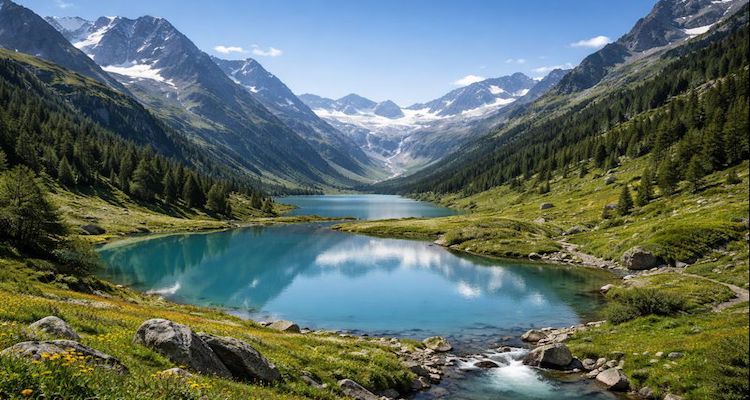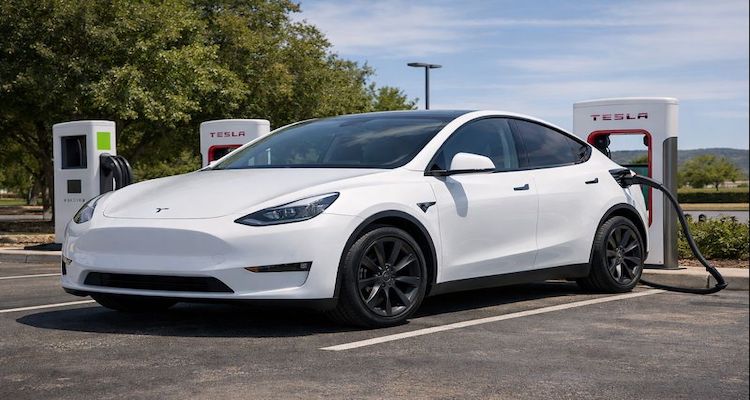Italy Moves Toward Nuclear Energy Revival After Decades-Long Ban

Italy is reviving nuclear energy nearly 40 years after banning it, aiming for energy security and sustainability. Discover how this shift could reshape the country’s energy future.
Italy’s Bold Step Toward Nuclear Energy: A New Era in Power Generation
Nearly four decades after rejecting nuclear energy in a national referendum, Italy is charting a new course toward atomic power. On Friday, the Italian government approved a law that lays the groundwork for reintroducing nuclear energy, a move that Prime Minister Giorgia Meloni hailed as a step toward energy security and self-sufficiency. The legislation, which still requires parliamentary approval, grants the government authority to develop detailed regulations for the transition.
A Strategic Energy Shift
Energy Minister Gilberto Pichetto Fratin has projected that the regulatory framework should be finalized by the end of 2027. In a statement following the cabinet’s decision, Meloni emphasized the importance of nuclear energy in providing clean, safe, and cost-effective power, strengthening Italy’s strategic independence.
With a renewed focus on sustainable nuclear technology, Italy aims to decarbonize its most polluting industries while leveraging advancements in modular reactor designs. The government argues that technological progress in safety measures and reactor efficiency has rendered the 1987 nuclear ban obsolete.
Economic and Environmental Implications
One of the driving forces behind this policy shift is the potential economic benefit. Italy estimates that integrating nuclear energy into its power grid could save approximately €17 billion ($17.69 billion) in decarbonization costs by 2050. The National Energy and Climate Plan suggests that nuclear power could comprise between 11% and 22% of the country’s total energy mix, significantly reducing reliance on fossil fuels.
By embracing small modular reactors (SMRs), Italy intends to develop a flexible and scalable nuclear infrastructure. Unlike traditional large reactors, SMRs offer quicker deployment, improved safety, and lower upfront costs, making them an attractive option for the country’s energy transition.
Building a Modern Nuclear Framework
The newly proposed law not only outlines operational guidelines for next-generation nuclear facilities but also commissions scientific research into cutting-edge technologies. A key aspect of this initiative is the dismantling of Italy’s outdated nuclear plants, ensuring a transition that aligns with modern safety and environmental standards.
Furthermore, the law calls for the establishment of an independent regulatory authority to oversee the nuclear sector, ensuring transparency and compliance with international best practices. This move is expected to foster public trust and attract private investment into Italy’s nuclear energy ventures.
International Collaboration and Industry Expertise
Despite its decades-long absence from nuclear energy production, Italy has retained a significant degree of expertise in the field. State-controlled utility company Enel operates nuclear power plants in Spain, while energy giant Eni is actively investing in nuclear fusion technology in the United States.
The government has been engaging with key international players to facilitate its nuclear revival. Last year, Pichetto Fratin revealed that Italy had been in discussions with Westinghouse (U.S.) and EDF (France) as potential collaborators for developing advanced reactors. More recently, reports from major Italian newspapers Corriere della Sera and Il Sole 24 Ore indicated that a state-backed consortium, featuring Enel, Ansaldo, and Leonardo, is close to being established to oversee the deployment of small nuclear reactors.
Overcoming Public and Political Hurdles
Italy’s shift toward nuclear energy is not without controversy. The 1987 referendum banning nuclear power was largely driven by safety concerns following the Chernobyl disaster, which fueled public opposition to atomic energy. While advancements in reactor technology have mitigated many risks, skepticism remains, particularly among environmental groups and opposition parties.
To address these concerns, the government has committed to transparent communication and public engagement, highlighting the stringent safety standards and economic advantages associated with nuclear energy. Additionally, Italy’s participation in international nuclear safety initiatives aims to reassure both domestic and global stakeholders.
The Road Ahead: What This Means for Italy’s Energy Future
With global energy markets facing volatility and climate change concerns intensifying, Italy’s decision to revisit nuclear power signals a strategic pivot toward long-term sustainability. By integrating nuclear energy into its power portfolio, the country aims to enhance energy security, reduce carbon emissions, and position itself at the forefront of next-generation clean energy technologies.
As Italy moves forward with this ambitious plan, the coming years will be crucial in determining how effectively the government can implement regulatory measures, secure investments, and gain public support for its nuclear renaissance. If successful, Italy could set a precedent for other nations reconsidering nuclear energy as part of their climate and energy strategies.
Italy’s renewed embrace of nuclear energy marks a pivotal moment in its energy policy. As the country moves forward with implementing regulatory measures and fostering international partnerships, the success of this initiative will depend on public perception, investment strategies, and the technological advancements that shape the future of nuclear power. With the right execution, Italy could emerge as a leader in next-generation nuclear energy, driving both economic growth and environmental sustainability.
Source: (Reuters)
(Disclaimer: This article is for informational purposes only and does not constitute professional advice. The views expressed are based on publicly available information and should not be interpreted as endorsements or recommendations. Readers are encouraged to conduct their own research and consult experts before forming conclusions or making decisions regarding nuclear energy policies.)
Also Read: Trump Accepts Rare Second UK State Visit Invitation from King Charles










